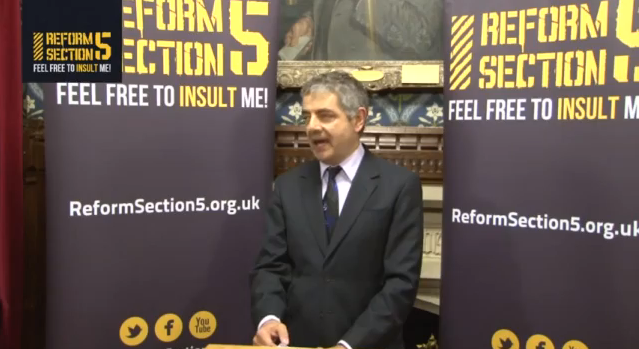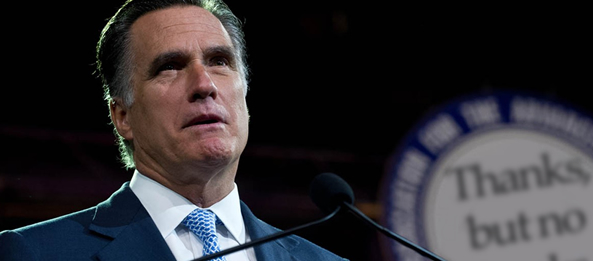“The plain fact of the matter is drugs are incredibly addictive, they destroy lives”. So said Tory MP Louise Mensch, successful politician, bestselling author, mother-of-three, wife of Metallica manager Peter Mensch, and former Class A drug user whose dabbling with certain unnamed narcotics has clearly ruined her life. Yes. Ruined. So she’s quitting the low-down, dirty, hand-to-mouth insecurity of political life in the UK and moving to America with the family, where hopefully life will be easier, more tranquil(liser).
Oh, Menschy, why’d you have to go now? By removing yourself from British politics you’re wrenching the linchpin from my argument, to wit, that drug-taking, per se, does not actually ruin lives. I guess I’ll just have to find some other poor down-and-outs to pick on, like David Cameron, Boris Johnson and Alistair Darling, all of whom smoked cannabis in their youth. In fact, a few minutes’ fervent Googling turned up a plethora of drug-related confessions from within the many echelons of British politics – among all these successful, powerful, well-educated people. I particularly liked the views of Tim Yeo (with whom Mensch shares both a political party and alma mater), who is said to have enjoyed the experience of smoking cannabis and thinks that “it can have a much pleasanter experience than having too much to drink.”
I hope Mrs Mensch doesn’t think she’s going to get away from these more liberal views on drugs just by moving to America – a country whose current President famously said of smoking cannabis:
“I inhaled frequently… That was the point.”
And as for some of the others… Bush Jnr abused alcohol (and allegedly cocaine); Clinton admitted to having a couple of puffs on a joint whilst studying in England, but not inhaling or liking it (oh, blame the Brits for leading you astray, eh Willie?); Mayor of New York City Michael Bloomberg was more candid, even going so far as to say that he has enjoyed smoking marijuana in the past. Al Gore and Sarah Palin have both been ‘outed’ in biographies as former dope smokers (add cocaine use to that, in the case of Miss Alaska). This kind of name-dropping is not intended to shame those in the spotlight, but rather to highlight two things: firstly, that dabbling in recreational drugs is extremely common, and secondly, that doing so does not automatically condemn one to a life of petty crime and back-alley blowjobs.
I’m terribly sorry, Louise, but your “plain fact” of my first paragraph is anything but. Drugs can be addictive, and they can be a major factor in “destroying” lives (what a horrible little phrase), but neither one of these claims is absolute. It is, in fact, quite absurd to just lump all controlled drugs in together like that; are we expected to believe that alcohol and heroin are equally addictive, equally life-destroying? Morphine is Class A, but doctors use it to alleviate severe pain in their patients – may I therefore infer that it is the application of the drug, not the drug itself, that we ought to be controlling? Fast food can be just as detrimental to health when ingested to excess, and obesity can and does ruin the lives of those who suffer from it as well as impacting on the lives of those around them; are you intending to ban fat and sugar for all, too?
I’m sure you’ll recall that, about four years ago, the Advisory Council on the Misuse of Drugs (ACMD) presented its conclusions regarding the dangers of cannabis use – conclusions that resulted in the dismissal of the Council’s chairman Professor David Nutt and the resignations of several other members of the ACMD. The problem, in essence, was that the Council’s findings did not support current government policy; against the Council’s advice, cannabis was reclassified as a Class B controlled substance. A study published by Nutt et al. in The Lancet in November 2010 reiterated that, using the multicriteria decision analysis approach (which took into account personal harm, social harm etc.), alcohol is the most harmful substance. I’m using percentages here to represent the study’s arbitrary ‘points out of 100’ scoring system of overall harm: alcohol achieved 72% on this scale, with heroin and crack cocaine ranking second and third respectively at just over the 50% mark. Cannabis was ranked much lower at 20%, making it 6% less harmful than tobacco. Magic mushrooms, LSD and ecstasy can be found huddled at the far end of the chart, each with a score under 10%. I found the scores for LSD and mushrooms particularly interesting because, as well as being of only very slight risk to users, they were deemed to be of absolutely no risk to wider society – and yet both substances are currently Class A, which can get you up to seven years in prison and a hefty fine. Even more interesting is DirectGov’s explanation that drugs are categorised as Class A, B or C “according to how dangerous they are.” Hmm. That’s a lie, isn’t it?
But I digress. The plain fact, Louise, is that just because you don’t like something doesn’t mean it should be prohibited by law. Or, as your fellow Question Time panel member John Lydon observed, “Just because you’ve had a bad time of it… Let us, as human beings, determine our own journey in life.” If you want to keep drugs illegal because of the damage they can do, you should also be fighting to make alcohol and cigarettes illegal, or you’re just being a hypocrite. If you want to allow people to make their own choices based on accurate information made available to them (and, perhaps, turn a tidy profit in tax), you’re going to have to legalise all drugs – or at least the ones proven to be no more damaging than tobacco, alcohol, and over-the-counter pharmaceuticals. But you cannot simply rally against something because it has personally upset you at some point. Your personal experience is not the experience of others, and to legislate based on personal views is to deny experiences to other people. You cannot keep people safe by stopping them from doing any activities that carry any risk. We must defer to evidence, to cold hard facts, and then disseminate this information as clearly as possible, in order to adequately equip those who are determined to take such risks.
I recently came across the notion of “truthiness”, a term coined by American satirist Stephen Colbert (The Daily Show, The Colbert Report) to explain the increasingly popular, and increasingly worrying, trend toward decision-making based on gut feeling rather than facts. Mr Colbert had in mind certain politicians of his own country when he said this, but I can see a very similar trend in the UK. In the case of drug legislation, surely it makes more sense to classify substances according to the harm they do, rather than political agenda, or societal perception (which, let’s face it, is usually based on very little information and sensationalist negativism courtesy of the mainstream media)? If we base policy on evidence instead of opinion, how can there be any arguments?




